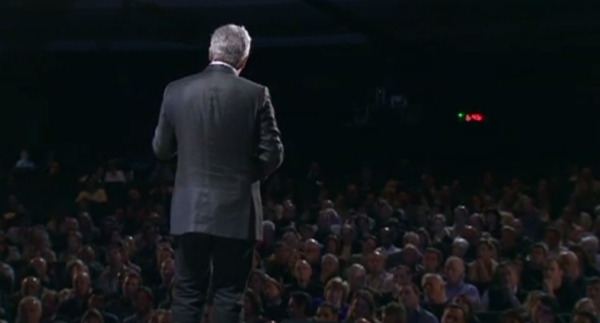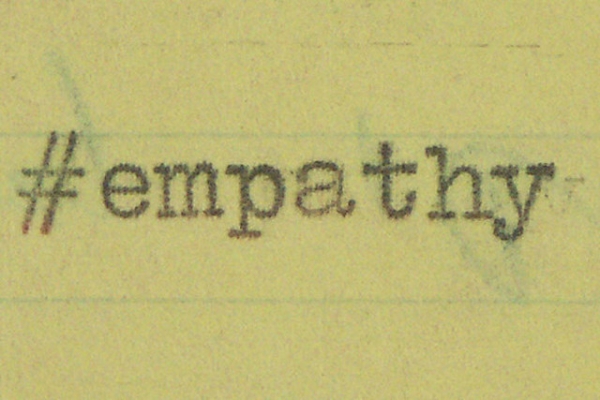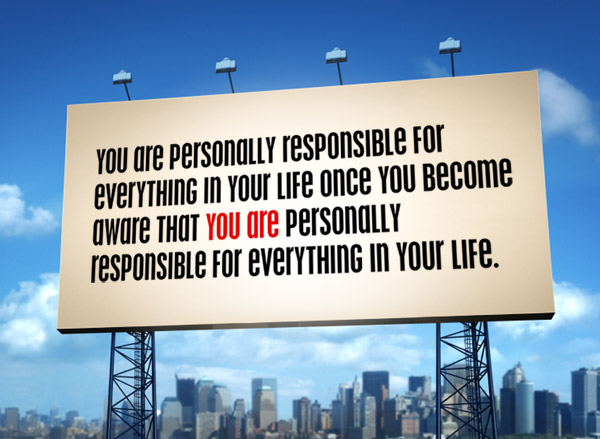


Be Careful With What You Think, Do & Say – Biologist Rupert Sheldrake Explains Social Influence & Interdependence Through Morphic Resonance
What you do, what you say and what you think can influence other people by morphic resonance. So we’re more responsible for our actions, words and thoughts on this principle than we would otherwise be. There is no immoral filter in morphic resonance, which means that we have to be more careful about what we are thinking if we are concerned about the affect we have on others.” British biologist Rupert Sheldrake, author of over 80 scientific papers and books, the most recent being The Science Delusion: Freeing the Spirit of Enquiry What Is Morphic Resonance? Morphic resonance is a memory principle in nature. Anything similar in a self-organizing system will be influenced by anything that has happened in the past, and anything in the future that happens in a similar system will be influenced by what happens now. So it is a memory in nature based on similarity, and it applies to atoms, molecules, crystals, living organisms, animals, plants, brains, societies, and indeed, planets and galaxies. So it is a principle of memory and habit in nature.” Interconnectedness Of People & Nature Explained Through Morphic Resonance An important aspect of morphic resonance is that we’re interconnected with other members of social groups. Social groups also have morphic fields, for example a flock of birds, or a school of fish, or an ant colony. The individuals within the larger social groups and the larger social groups themselves have their own morphic fields, their own organizing patterns. The same is true of humans. People form all sorts of social groups within modern society, such as a football team, for example. Each player in...
Big Love. Big Hearts. A Plan For The Creation Of One Global Extended Family
With the current globalization of our problems, we need to extend our circle of empathy and view humanity as a worldwide extended human family. As long as we refrain from facing that challenge, divisiveness and unsolvable conflicts will persist.” Professor Rodrigue Tremblay is an author and Emeritus professor of economics at Université de Montréal. In addition to his writings on economics, he has also written extensively on the subject of ethics; and most recently, on the urgent need for a new level of universal ethics, morality, and empathy to be developed and maintained in the world. The Super Golden Rule [In a more universal civilization], first and foremost, the scope of human empathy would be more universal and more comprehensive, and would not merely apply to some chosen people, to members of a particular religion or to persons belonging to a particular civilization. In practice, this would require that we establish a higher threshold of human morality, beyond the traditional norm of the Golden Rule (‘Treat others as you would have others treat you.’) It would require that we adopt what I call a Super Golden Rule of humanist morality that incorporates the humanist rule of empathy: ‘Not only do to others as you would have them do to you, but also, do to others what you would wish to be done to you, if you were in their place.’ — Of course, the corollary also follows: ‘Don’t do to others what you would not like to be done to you, if you were in their place.’” Three Interrelated Moral Imperatives Three interrelated moral imperatives that have always been sound moral values, but which...
Bruce Lipton – The New Biology: Where Mind And Matter Meet
You are personally responsible for everything in your life once you become aware that you are personally responsible for everything in your life.” – Bruce Lipton, Ph.D. Part 1 http://www.youtube.com/watch?v=HVECAlT4AXY Part 2 http://www.youtube.com/watch?v=Zcg_ldoU40c Related Materials: Summary of “Where Mind & Matter Meet” by Allen Smith Prezi presentation of “Where Mind & Matter Meet” by Edmond Johnsen Bruce Lipton’s complete library of DVD’s and video is available through: Spirit 2000, Inc. 1 (800) 550-5571 Visit: BruceLipton.com Spirit2000.com Write: Spirit 2000, Inc. P.O. Box 41126 Memphis, TN...
Can You Change The Future?
What the people really needed was just some basic common-sense information and advice, somebody to tell them the truth – that their way of life was coming to an end – and to offer them some sensible collective survival strategies.” – Richard Heinberg Now, You Face A Bleak Future “A Letter from the Future” is an imaginary letter written in the year 2101 to by a 100 year old Richard Heinberg – senior fellow at the Post Carbon Institute and author of 10 books on issues of energy, the economy and ecology – to people of the world living in our times, about the tough future expected according to tendencies scientists and economists foresee humanity experiencing in the coming century. It portrays a picture of a humanity struggling to make its way when the life it created for itself throughout the 20th century faces its depletion: depletion of energy resources, devaluing of money and products above the level of necessity, scarcity of food and water, and political motions toward fascism and war. After painting a bleak picture of a suffering humanity dealing with all of the above during the 21st century, Heinberg raises the question… Can You Change The Future? Possibly, as a result of reading this letter, you might do something that would change my world [the world of the person living in the year 2101]. … Then, I suppose this letter would change, as would your experience of reading it. And as a result of that, you’d take different actions. We would have set up some kind of cosmic feedback loop between past and future. It’s pretty interesting...
